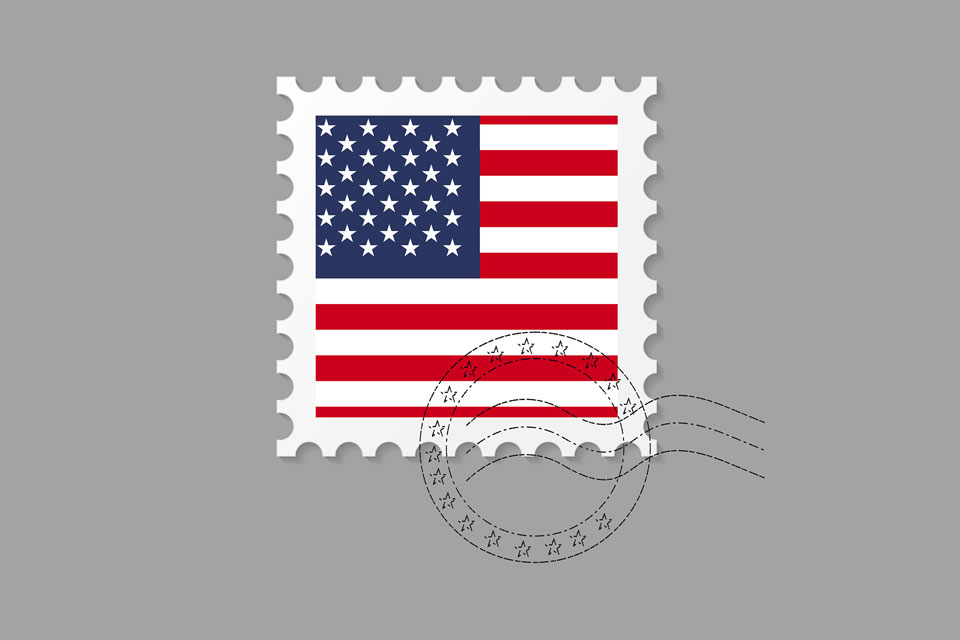Every year in March, expat communities in Korea go ablaze with countless English teachers from the US seeking tax advice on how to file their taxes. Both good information and false information gets circulated and while a good number of teachers file their taxes correctly. However a good other portion does not, and another portion often does not file at all.
Korvia set out to set the record straight and ask certified public accountant and tax professional Seung Kang what specifically English teachers in Korea from the US need to know to file their taxes correctly from abroad.
Q: “What tax forms do US English teachers in Korea need to fill out and send to the IRS?”
SK: While it can vary depending on your situation, generally US citizens teaching English in Korea need to pay attention to the following tax-related forms:
Form 1040: US Individual Income Tax Return
This is the basic income tax return form that ALL US residents and citizens are required to complete. The 1040 reports your gross income, all the deductions, exclusions, exemptions and credits, as well as your taxable income and actual tax amount.
Form 2555: Foreign Earned Income
This form is specifically for expats. If you meet either of the two tests (the Bona Fide Residence Test or the Physical Presence Test) you can claim exclusions such as the Foreign Earned Income Exclusion and a Housing Exclusion. By claiming these exclusions, you can exclude your foreign earned income from taxable income. This will basically offset your taxable income.
Form 1116: Foreign Tax Credit
This form is used when you are not eligible for to complete Form 2555 (mentioned above). If you paid Korean income taxes on your earned income in Korea, you can claim a foreign tax credit for your Korean taxes in your US income tax return.
Form FinCEN 114: Report of Foreign Bank and Foreign Accounts
This form needs to be filled out if you have bank accounts in foreign countries. If the value of these accounts at any time is over $10,000 USD (including multiple accounts combined), you must report this to the Treasury department by June 30th, 2016 for the 2015 tax year. For all tax years after 2015, the date will be changed to April 15th. This form needs to be filed separately from your US income tax return.
Form 8938: Statement of Specified Foreign Financial Assets
This form needs to be included with your 1040. You use Form 8938 to report your specified foreign financial assets if the total value of all the specified foreign assets is more than the appropriate reporting thresholds. This can include things like stocks, securities, investments in other foreign entities, etc.
Q: “What documents do English teachers in Korea need to obtain from their schools?”
SK: English teachers should obtain the following two things:
Certificate of Income (소득금액증명)
This shows your total income, taxes withheld, and your income type for the year. If your employer didn’t issue this or you lost it for some reason, you can go to a local tax office and request it.
Wage Earner Income Statement (근로소득 원천징수영수증(근로소득 지급 명세서)
This is pretty much equivalent to an end of the year pay stub that shows your gross income and withholding taxes, but it also includes how much was taken out for health insurance, pension contribution, and some other things. Your school or employer should be able to provide you with this.
Get both if possible for your records. But if you only can obtain one, the wage earner income statement should be easier to obtain and has all the information you need to file the US tax forms.”
Q: “Do teachers need to file a state-tax return on top of their federal-tax return?”
SK: This question can’t be answered for everyone as it depends on the state.
Each US state sets its own rules regarding state taxes for expats. Some states do demand that you file a state return, while others release you when you move away. The rules can be complicated, so be sure to ask your professional tax preparer before making any assumptions.
Q: “What are the possible penalties for not filing taxes while abroad?”
SK: Late filing penalties will be your main concern if you didn’t file the return on time. Interest on taxes and penalties can also occur. While tax authorities are not normally hard on expats (especially if their income is under foreign earned income exclusion) it’s always best to make sure you have income tax return records for each year.
Those required to file an FBAR who failed to do so properly may be subject to a civil penalty not to exceed $10,000 per violation for non-willful violations that are not due to reasonable cause. For willful violations, the penalty may be the greater of $100,000 or 50 percent of the balance in the account at the time of the violation, for each violation.”
Q: “What is the FBAR and how does it affect English teachers? What additional form(s) do they need to fill out?”
SK: FBAR stands for “Report of Foreign Bank and Foreign Accounts”. When you have financial assets overseas, the Treasury department wants you to report the details of these accounts. Typically if you hold over $10,000 USD in your foreign account (or with multiple accounts combined) at any time, you need to report it.
The basic form for this is FinCEN 114. However depending on situation, you might end up having to include Form 8938 (Statement of Specified Foreign Financial Assets) with your income tax return. Please inquire with your tax preparer on the matter.
Q: “What other issues can arise for teachers if they don’t file their taxes while abroad?”
SK: Missing years of tax returns means that there is no official income record for your financial history. This can cause problems when applying for various types of loans (mortgage, equity, student, etc) as well as many other legal procedures.
Q: “What advice do you have for teachers that have been in Korea for multiple years and have not filed any tax returns?”
SK: Your top priority needs to be to file all the previous years’ tax returns as soon as you can. Especially if you had or ever had 10,000 USD in your accounts as the FBAR has severe penalties.
Do not think it will be easier when you get back to the states to do it. It will in fact be MORE difficult since you won’t be able to get all the necessary documents from your employer or Korean tax office.
Q: “What types of mistakes do you find English teachers often make about filing taxes from abroad?”
SK: Many teachers think that because their income level is under the Foreign Earned Income Exclusion ($100,800 in 2015), that they don’t owe any taxes and therefore don’t have to file.
This is completely wrong.
The IRS and other tax authorities don’t know you don’t owe taxes unless you file your returns correctly claiming the exclusions or foreign tax credits. Income tax returns should be filed on time and you should claim whatever you are eligible for.
Q: “What can teachers start doing now to help them during this year’s tax season?”
SK: Start looking into retrieving your year-end pay stubs from your employer(s). If your employers aren’t able to provide them, you can go to your city’s local tax office and request them.
FBAR documents also need to be gathered (if you feel you fit the criteria). To do this, visit a branch of your bank and ask for balance statements to date that state the highest balance of the year.
Once you have all the necessary documents ready, it’s much easier to start preparing all your tax returns and FBAR filing requirements.
Q: “Is there anything teachers need to be aware of when sending money home?”
SK: There is currently no regulations regarding the matter of sending your money to your own account in the US.
However, if you are sending more than $14,000 to one person (that is not yourself), gift taxation could become an issue. It’s best to consult with a tax professional if you feel this describes a situation you’re currently in.
Q: “Can you break down what teachers need to do to file their taxes on their own?”
SK: If I were an English teacher in Korea, these would be the steps I would to take:
1. Collect all necessary Korean tax information
Get a wage earner certificate from employer. If you already got one and cannot locate it now, you could visit a local tax office and ask for a certificate of income.
2. Check to see if you are over the FBAR threshold
Visit a branch office of my bank and ask for a balance statement as of the date with the highest balance. If you hold over 10,000 USD in your account (make absolutely sure to check against currency conversion rates), you need to fill out the FBAR forms as well.
3. Check and collect tax documents for any accounts back home
Are you making interest in your savings account back home? Did you make any additional revenue in the US while you’re in Korea? If you have any tax relevant documents such as tax statements for accounts back home these need to also be collected (1099-Int, 1099-Div, 1098-T and others).
4. Get familiar with your tax form instructions and guides
There are instructions and guides for each form you need to complete. While the instructions might look lengthy and intimidating, they contain easy examples to help taxpayers understand the various forms and what information is needed to file.
Publication 54 ‘Tax Guide for U.S. Citizens and Resident Aliens Abroad‘ is a great starting point for teachers and expats in Korea. Other instructional guides that most expats will need to pay attention to: Form 1040 Guide, Form 2555 Guide, & Form 1116 Guide.
5. Choose a filing method
You can get a commercial tax software such as TurboTax and more. Make sure to check the version as some of the versions do not allow you to e-file your return for forms 2555 and so on.
You can paper file your return. You can easily download PDF type-in forms from the IRS website here. When you paper file from overseas the following is the address you mail out your return to:
Department of the Treasury
Internal Revenue Service
Austin, TX 73301-0215
You might also be able to use IRS freefiling. Please visit the link here to see if you are eligible.
*Please note that the IRS does not accept e-filing for delinquent tax returns. All delinquent tax returns must be filed via paper.
6. Make a copy of your return and organize your documents
After filing your return, make sure to keep a copy of the return. This seems like a no-brainer but not many taxpayers actually do it.
In addition, you should buy a folder or basket where you can keep all your tax related documents for future reference. This will make filing future taxes much easier.
7. You’re done!
The IRS doesn’t notify taxpayers of the completion of the filing process. When e-filing your tax return, you will receive a confirmation of your submission, however, this is just an acknowledge of them receiving the return.
If they need additional information or there is something wrong, a notice will be issued.”
Seung Kang is a certified public accountant, financial planner, and analyst based in New York. Seung specializes in US expat taxes for foreigners living in South Korea. Being well versed in both Korean and American tax systems and regulations, Seung has helped hundreds of expats in Korea get a hold of their financial matters while living abroad.
If you’d like Seung to help you get a hold of your tax situation while in Korea, visit www.seungkangcpa.com or send him an email at [email protected]. Seung also moderates the Facebook group US Expat Taxes in Korea, a community for US expats seeking tax help.
*Featured image courtesy of Freepik






Wonderful! Thank you so much for complete help.
First Korvia gets me through the visa process, now they’re saving me with taxes! Thanks, Korvia!!
[…] Korvia is once again, super helpful with this. I didn’t use Korvia to come to Korea, but I heard a lot of great things about them on YouTube. And I love their online resources so I used their post as a guide. You can find their post here: https://www.korvia.com/filing-us-taxes-from-korea/ […]
If you’re making under a certain amount (I think it’s something near $36,000), which most English teachers in Korea will be, you can use the IRS free file system. It uses the big tax filing software (TurboTax, etc) but is free to use and files both Federal and State taxes electronically. Super simple to complete taxes with a user friendly interface. Really nice for filing taxes abroad.